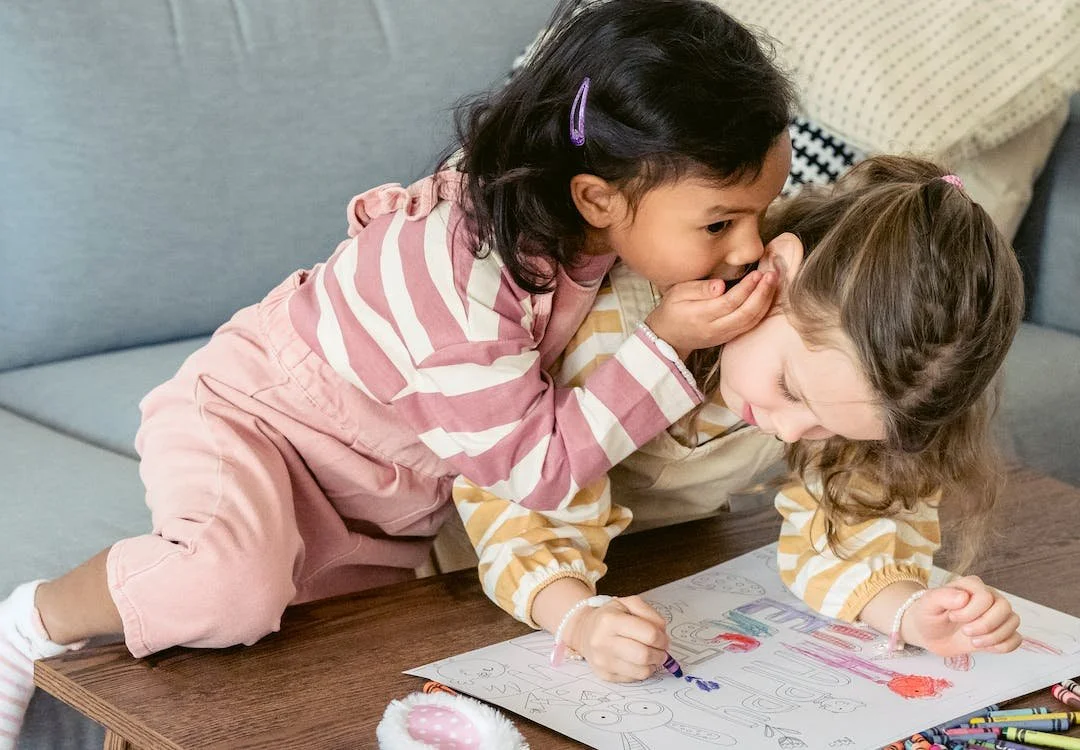Research suggests that children and young people in care have certain developmental delays, these can be physical, mental and emotional. Therefore, it’s imperative for foster carers to cater to their needs, as well as supporting their development, through educational support, physical health and emotional/mental welfare.
At BGFA we find the best foster carers to match each child, as well as providing these carers with all required training to make certain they can support their foster child. Most of the children and young people in care come from distressing backgrounds where they are unable to live at home. Statistics show that in March 2023 there were 83,840 children in foster care - a two percent increase from the year before.
What does research say about developmental delays in children in care?
Being in care is challenging, especially for those who’ve experienced trauma in early childhood. This experience is called Adverse Childhood Experiences (ACE’s) which includes abuse and neglect. Children who enter the care system at a young age are at risk of numerous developmental, physical and mental problems. Therefore, foster children may have a higher chance of experiencing ACE’s, potentially increasing their risk for physical and mental problems later in life.
However, it's important to remember that this is not always the case, some children won’t develop these problems or come from such a stressful background. It is nonetheless essential to know the increased risks of children developing such emotional challenges, as it will prepare you to take care of them.
What types of development are affected?
Learning and social development
The development of social skills is key for children; it allows them to live and interact with others. As many children in care come from disadvantaged environments, it is often difficult for them to develop these essential social skills.
One aspect of providing good quality care is creating a caring and supportive environment for the social development of your foster child. This includes teaching them about cooperation, communication, and empathy.
Education and cognitive development
Education is key in a child's cognitive development and foster carers have a vital role in supporting, encouraging and rewarding this.
There are numerous gentle approaches to aid children in their education. Carers can establish open lines of communication with teachers, tutors, and other individuals involved in the child's educational journey. Regular, caring conversations with these important figures can create a supportive environment that promotes a comprehensive understanding of the child's academic progress and needs.
Additional ways to support a child's education and cognitive development involve assisting with homework, offering encouragement for their progress, providing positive reinforcement, and cultivating a home environment that nurtures a love for learning
Children in care tend to perform quite poorly in education compared to the general population - with only approximately 6% of care leavers aged 19-21 attending university.
These statistics are understandable when considering the impact of their early years before entering a stable and positive environment. More so, it's crucial that you do what you can as a carer to advocate both learning and education, immersing these values in everyday activities.
Mental health and emotional development
School aged children in foster care have been recognised as having an increased risk of developing issues relating to their emotional wellbeing.
Research indicates that approximately half of all foster carers are providing support for children with mental health issues (Ferguson, 2022). Additionally, findings suggest that individuals transitioning into independent life after being in care often face challenges related to poor mental health and diminished quality of life.
This highlights the importance of the transitionary period when a young person moves to become more independent after leaving care.
Physical development
Physical development in children is usually one that is deeply affected by living in unstable and unhealthy environments. For example, a child might not be given balanced meals regularly or have access to a healthy lifestyle.
If a child is in your care, you can help their physical development improve significantly by providing nutritious meals and offering physical activities and sports.
Regular doctor check-ups are also important in making sure any health concerns are addressed, allowing for improved physical development.
What foster carers can do to help
1. Form positive attachments
Forming positive attachments will help children to recognise others needs and to create foundations of trust, empathy and understanding to build future relationships.
2. Provide a safe and happy environment
Providing a safe and happy environment is vital for healthy development in children, as many of those in care have come from an unsafe and unhappy atmosphere. Therefore, to allow for healthy growth, foster children must be in a positive and secure environment.
3. Support and encourage education, ensuring they stay in school
Education is extremely important when it comes to social learning and cognitive development in children, especially foster children who may have not had opportunities for educational growth otherwise. Encouraging and rewarding their progress will motivate them to focus on their education and learning, helping to increase the chances of a positive and independent transition into adult life.
4. Help develop everyday skills that will be used later in life
Assisting in the development of everyday skills such as cleaning, cooking, communication, and grocery shopping can facilitate the child's successful transition into independent adult life.
5. Work with other professionals for support
Collaborating with professionals like doctors and teachers enables children to receive the necessary support, covering essential aspects such as education, mental health, and physical well-being, all of which are crucial for healthy development.
6. Take part in regular training to constantly develop your skills
As a foster carer it's imperative that you are constantly training and developing your skills to the current standard, this will help you do a better job as a carer.
7. Take children on ‘away days’ or holidays if possible
Taking children to different areas will help to give them an enriching and eye opening experience, further helping with social skills and in turn social learning and development.
Developing a bond with your child as a carer
We’ve spoken about the obstacles that can make fostering have its challenges, but there are more to foster care than obstacles. It is a beautiful and enriching experience for both the foster child and the carer. If you’re new to foster care, BGFA will give you all the necessary training so that you are able to provide the child with what they need.
It's important that you show your foster child that you care for them and support their goals. As their guardian you will have to look for what's best for them and assure them that you’re there for them. Once a child sees this, it’ll be much easier for them to open up and connect with you.
Get to know your foster child's likes and dislikes as well as their passions and routine. You will be able to then cater to their needs and behaviours better, again allowing them to start trusting you.
Here are a few things you can do
Make time for them
Listen to them
Praise and encourage them
Share a hobby
Exercise and take part in their favourite physical activities
Play games together
Build trust
Remember you have access to all of our support to ensure you’re able to do a fantastic job at caring for your foster child!
Fostering is from the heart!
Before one can find a spare room in their home, they need to first find some space in their heart to truly transform a child's life. It is an incredibly rewarding job, especially with the increased number of children in care who are looking for a caring home to thrive. You can help these children and allow for their development to go smoothly, and have a bright future ahead.
Support for foster carers
We’ve spoken about supporting foster children, now we will discuss the importance of supporting foster carers. At BGFA, we provide a service that caters to the needs of our foster carers, allowing them to properly care for their children as well as themselves.
One of our most important values as an agency is to provide endless support for our foster carers. We provide extensive training to ensure our carers are prepared for the role and meet the necessary requirements of being a foster carer. Additionally, we have our dedicated social workers available on an out of hours basis, and therapeutic services for the children in care, if needed.
Foster care is transformational
Foster care is transformational when it comes to child development, it allows for a child to be in a nurturing, safe and stable environment, allowing them to reach their full potential as well as maintaining healthy relationships.
Often when children come into care, they have suffered some sort of trauma and ACE’s, this can both delay and negatively affect their development. However, when they are placed in a positive environment with foster carers, this can truly help to transform their lives.
What our foster carers have to say about their role in child development
“When children and youth enter foster care, as foster parents we undertake various responsibilities. They establish healthy routines covering mealtimes, bedtimes, bath times, and homework. Ensuring a culturally and religiously appropriate diet is essential. We also register and attend medical appointments, providing necessary moral and emotional support.
We facilitate access to specialised healthcare, such as speech therapy, and register children in school, offering support in academics and addressing bullying concerns. For young people we assist in college registration and subject selection. Embracing cultural and religious events like Eid, Diwali, Easter, and Christmas is part of meeting the children's needs.
Communication and attentive listening are crucial in foster homes, contributing to the mental and emotional well-being of children. Creating a safe environment both indoors and outdoors is key to providing good care.”
BGFA Foster Carer
You can read more of our transformation stories here.
We are currently experiencing a national shortage of foster carers, we understand not everyone is able to foster, but if you feel like you can, please contact us on info@bgfa.co.uk or call us on 01753 868686.
Merry Christmas and a Happy New Year from BGFA and our foster care family!











